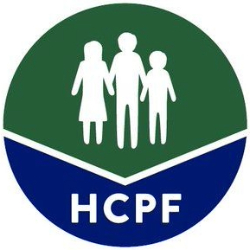News and notes from Imagine! and the Imagine! Foundation.
5 Ways Case Managers Can Better Support Spanish Speaking Individuals with I/DD
Aug-17-2020
Services

Guest writer Marlen Montanez joins us today with a topic on how Case Managers can better support their Spanish speaking clients. She is a Case Manager with Imagine! and the Bilingual Team Lead.
If you are new to Case Management or have worked in this field for years, you might have questions on how you can better serve your Spanish speaking clients. Perhaps you don’t speak Spanish, or you aren’t sure where to even start to find resources for the family you are working with.
Don’t worry, we are here to help! This article is the first in a series to help you better support your clients with disabilities who speak Spanish. To start, I’ve compiled an introduction into supporting Spanish speaking families with 5 ways to help you in the beginning stages of your time together.
Check on their immigration status
When someone reaches out to me, I find it is critical to understand their immigration status in order to know what kind of resources to offer them. I want to maintain their safety and privacy during the time that we work together, so that they are able to get the help that they need without being placed in any situations that can cause more problems down the road. Additionally, it’s important never to turn away a family based on their immigration status just because finding resources might be more of a challenge. Some of the resources that I’ve personally used while helping clients include El Comité de Longmont and El Grupo Vida.
 Ask what areas in which they need support
Ask what areas in which they need support
In order to find the best resources for a client, it’s best to understand all areas of their life. You should inquire about their housing, jobs, income, community, and family to understand where they might not have the best support. By doing this, you will be able to find resources or direct funding towards the areas that are needed the most, thus helping the families thrive. For example, if the client is having trouble finding affordable housing, then you will search for resources such as Sister Carmen Community Center, which provides housing assistance programs to individuals in Boulder County.
Help them through the language barrier
If your client only speaks Spanish, then finding a translator is going to make finding resources and support a lot easier and a lot more impactful for the family. One of the most important things to keep in mind is that any forms or official documents that you give to the family MUST be in their native language. So before you send anything over, check with your team on if you have the appropriate documents translated and where you can access them. Additionally, it’s helpful to know what organizations and resources offer translation services or at least a bilingual contact that you can refer your family to.
Help the families become independent
In order to ensure that these families have the best support for years to come, you must try to help them establish their own independence. Help them educate themselves on their rights, what resources are available to them, and where they can go for help if they need it. This is crucial in making sure that if they are ever in a situation where they need help, they can find it and take action sooner. It’s better for the family if you act as more of a person of guidance for the families, as the old saying goes “Give a person a fish and you feed them for a day; teach a person to fish and you feed them for a lifetime.”
.jpeg)
Commit to the families
One of the greatest parts about being a Case Manager is helping families and helping them enter a world of opportunity that might have been difficult to access before. These folks are so welcoming and happy to have help, but Case Managers must follow through on their commitments to these families. While finding resources, a translator, and navigating territories new to you might be daunting at first, it’s not impossible. So next time you are given a new case file on a Spanish speaking client or family, don’t just express interest in helping them without following through. The more we push to help these families to have all the information that they need translated into Spanish, the more access we are creating for them.
The Spanish speaking community makes up a huge portion of Colorado and the United States as a whole, and we have a duty, both professionally and morally, to support them with the same level of care and attention that we give English speaking families. Imagine! itself serves over a thousand Spanish speaking families, with that number growing each year. By learning how you can better support these families, you are taking the first step in helping to create a world of opportunity.
We will be sharing more resources in the coming weeks to help you understand these families better, what you can do to support them, and how to make sure their voices are heard. So be sure to check back soon for more helpful information!


